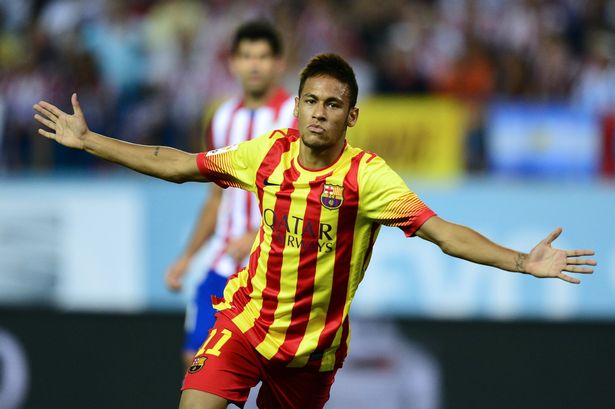Prodigies are a relatively common item in the madness of the sports world. In the constant fervor to find the next big superstar, children with exceptional athletic talents are elevated onto well-worn pedestals. There, they are subject to dizzying levels of attention and excitement by media and fans alike. The enormous amount of external pressure, combined with the fact that prodigies are, by definition, mere kids with a lot of growing up to do, makes it extremely difficult for these wunderkinds to blossom into the premier athletes they are touted to become. As a result, the narrative of young sports stars falling by the wayside has become widely familiar. Marcus Dupree, Freddy Adu, Bobby Carpenter, and Jon Peters are just a few of the countless examples of athletes who appeared destined for greatness as youths, only to fade into obscurity during adulthood. On the other side of the coin, there are a good deal of sports prodigies who have successfully developed into elite sports stars. Bryce Harper, Kevin Garnett, and Shaun White are a few names that spring to mind.
However, the rarest phenomenon in regards to athletic prodigies is the individual who actually manages to exceed the early hype that surrounds them at such a young age. Because predictions for sports phenoms are so often overblown and unrealistic, it is truly a remarkable feat for these athletes to perform above and beyond the near-impossible expectations set for them. There are precious few people in the sports world who meet the criteria for such an astonishing achievement. Tiger Woods, Serena and Venus Williams, Wayne Gretzky, LeBron James, Lionel Messi—these are the names of planet Earth’s finest athletic specimens who have surpassed all the hype surrounding them as teenagers and younger. For every one of them, there are thousands upon thousands of promising young athletes who haven’t reached the heights they were once promised to attain. Yet, currently, one young soccer star is well on his way to joining their prestigious ranks; his name is Neymar da Silva Santos Júnior, commonly known as Neymar Jr.
Neymar has been Brazil’s golden boy since around the age of 13 years old, when he joined the academy of Brazil’s most historic and prominent soccer team, Santos FC. Santos’ academy, incidentally, is the place where (arguably) the greatest of them all, Pelé, got his start. At 14, Neymar was already playing in exhibition matches alongside some of Brazil’s legends, including Romario, Robinho, and Ronaldinho. In 2009, at the age of only 17, Neymar was already playing professionally for Santos FC. 2010 was the year that the hype surrounding the young Brazilian went global, as Neymar netted an incredible 42 goals in 60 games at the staggeringly young age of 18. In 2011, the frenzied attention focused on Neymar only augmented, as he was recognized as the South American Player of the Year and won the prestigious Puskas Award, FIFA’s annual award for the greatest goal scored in the world. Essentially, Neymar’s incredible achievements as a teenager are nearly endless—debuting for the Brazilian National team, scoring 43 goals in 47 games in 2012, multiple recognitions as the Brazilian League’s best player of the season. All the while, the hype around Neymar reached unprecedented levels, with world soccer legends such as Lionel Messi, Ronaldo, Ronaldinho, and Pelé praising the young forward’s talent.
Yet, despite the monumental expectations, there have always been doubts about Neymar. The soccer world has seen too many flashy, speedy young wingers with promise develop into players of middling quality. The simple fact is that, with advancement through the academy ranks and into professional soccer, it becomes more and more difficult for these types of players to simply dribble or run past defenders. Freddy Adu, Ricardo Quaresma, Bojan, and Nani are recent examples of technically skilled attacking players who largely failed to live up to the hype surrounding them as youths. Furthermore, there was the big looming question: could Neymar cut it in Europe, where the most competitive soccer in the world is played? To put it bluntly, the Brazilian League is an attacker’s paradise. The overall quality of teams is lacking, defenses are generally below par, and players are given a lot of time and space from defenders when in possession of the ball. This is certainly not the case in European leagues.
After Neymar transferred to FC Barcelona for an astounding 86 million euros in 2013, the whispers of doubt about his ability turned into genuine concern. He just didn’t seem to click with the other players in attack, including the soccer deity Lionel Messi. Neymar also struggled physically, his slight frame proving to be an issue when facing off with the taller, stronger defenders of La Liga, rather than those in the Brazilian League. He appeared rushed on the ball, struggling to find the space and time to dribble, pass, and shoot. All in all, the skinny Brazilian endured a rough first season in Barcelona, scoring only 15 times in 41 games. Once seemingly guaranteed for stardom, Neymar Jr. was in danger of becoming yet another prodigy turned disappointment.
Something changed for Neymar after that initial campaign in Spain. Perhaps he realized that his one-dimensional style of play, so successful at Santos FC, wouldn’t be enough in Europe. Maybe he just needed more time to mature and grow into the new system at Barcelona. Whatever the case, Neymar has been an absolute revelation since the end of that dispiriting first season. In the 2014-15 season, he scored a brilliant 39 goals in 51 games, while contributing 10 goals in the Champions League—making him joint top-scorer. As a member of Barcelona’s vaunted attacking trio of MSN (Messi, Suarez, Neymar), Barcelona’s offensive unit scored 122 goals last season, setting a record in the history of Spanish soccer. Thanks in part to Neymar’s excellent play, Barcelona won the prestigious 2014-15 treble, which includes winning La Liga, the Champions League, and the Spanish Copa del Rey. Meanwhile, in international play, Neymar developed into Brazil’s talisman. He continued to score at an incredible rate for the team, contributing to his record of 46 goals in 67 games. At the 2014 World Cup, he scored 4 goals and had 2 assists (enough to win the Bronze Ball at the tournament) before fracturing a vertebra in his spine during the quarterfinals. It’s no coincidence that, without Neymar, Brazil lost the semifinals to Germany by a score of 7-1.
Although his 2014-15 season was world-class, it is only recently that Neymar has ascended to levels of soccer genius that arguably transcend the hype that has followed him since he was a 13-year-old boy. He is no longer a skinny winger who depends on superior speed and technique to outdo defenders. This current season, it has become more and more noticeable that Neymar, still only 23, has developed into a complete soccer player. His superior speed and dribbling are still there, but he’s added entire dimensions of skill to his overall play. Indeed, Neymar’s vision, passing, finishing, and positioning abilities have developed to scarily high levels. It’s clear that playing alongside some of the world’s finest older players, like Messi, Suarez, and Iniesta, has helped Neymar become possibly the third-best player on the planet. The first two are, of course, Cristiano Ronaldo and Lionel Messi—but Neymar could very well be on his way to the top spot.
Especially with the absence of Messi due to a knee injury, Neymar’s magical abilities have been on full display this season. He has stepped up to become the team’s main goal scorer, with an unreal 13 goals in only 14 games. He leads La Liga in goals with 11, two ahead of teammate Luis Suarez and three ahead of superstar Cristiano Ronaldo. Even with defenses shifting their focus towards him, Neymar simply cannot be stopped. It seems as though every shot he takes finds the back of the net, every pass he attempts finds it’s target, every dribble he tries bewilders the defender. Just last weekend, he scored one of the finest goals of the year in a stunning show of technique and creativity. It’s safe to say that the hints of doubt regarding the Brazilian have been extinguished.
Perhaps most remarkable about Neymar’s talent is that, even after spending the better part of 10 years in the spotlight, he’s still just 23-years-old. If other players like Messi, Ronaldo, and Ronaldinho are anything to go by, Neymar won’t even hit his prime for another four or five years. Given the sheer brilliance of his current play, the prospect of an even better Neymar is almost unnerving. It’s true that Neymar Jr. was hyped to be Brazil’s next superstar, but it’s looking more and more likely that he’ll become the best soccer player on Earth—fully outshining all expectations.







His first season wasn’t as bad as people made it seem. That’s fairly good for your first year in Barc. The team also wasn’t as strong as that year.
His first year wasn’t that bad, but he definitely looked out of his depth for most of the season. The difference between his first season and his second season is huge